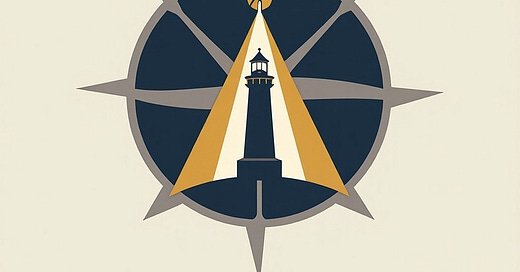Episode 2 – If I Were President
If I were President of the United States, the first thing I’d ask us to consider is this:
Why do we call for mercy in some cases—but not in others?
We’ve seen violent mobs forgiven.
We’ve seen corporations bailed out.
We’ve seen broken systems preserved while broken people are punished.
But for the undocumented man who’s been here for years—working, parenting, paying taxes—we offer no consideration in our minds and no pardon in our hearts.
Just paperwork. Or silence. Or a knock at the door.
And yet, he’s the one who cleans our schools.
She’s the one who nurses our children.
They’re the ones who believe in us even when we don’t believe in them.
Let’s clear something up.
Crossing the border without authorization is not a felony.
It’s not even a misdemeanor in most cases.
It’s a civil violation—like dozens of things people do every day without being labeled a criminal.
To put that in perspective, here are seven common civil violations under U.S. law:
Speeding
Accidentally running a red light
Failing to appear for jury duty
Breaking a lease agreement
Failing to pay a federal loan (like a student loan)
Being drunk in public (in most jurisdictions)
Filing taxes late or with errors (without fraud)
None of these make someone a felon.
Most don’t even make the local news.
You get a fine. You fix it. You move on.
And yet—millions of immigrants who entered without authorization, or overstayed a visa, are treated like threats to the nation.
They face detention. Deportation. Lifetime exclusion.
They’re called criminals when they haven’t been charged with any crime at all.
This isn’t about law.
It’s about fear.
And sometimes, it’s about money and manipulation.
That’s why the idea of a pardon—even just a symbolic one—matters.
Not because we’re excusing something wrong,
but because we’re correcting something much more dangerous:
a culture that mistakes fear for justice, and punishment for strength.
✨ A Modern Mercy
There’s a man—Víctor.
He crossed the border in the dark, holding his daughter’s hand and nothing else.
No papers. No passport. Just hope, and a name.
For fifteen years, he lived in the quiet corners of our country.
He worked construction in the summers and shoveled snow in the winters.
He paid taxes under a borrowed number, helped build a church roof, and never missed a parent-teacher conference.
He had no criminal record—except the way he came.
His wife, Marisol, kept the home together.
Their daughters—Juanita, who now goes by Janet, and her younger sister Isabel—were born and raised here.
They’re as American as the kids in their school—except for the silence they learned to carry.
One night, a broken taillight led to a traffic stop.
And just like that, the life Víctor had built was in chains.
He stood in front of grace.
Not the kind that comes from a courtroom.
The kind that comes from us.
The kind we choose to extend—or withhold.
And grace asked him—not with suspicion, but with sincerity—
“Why did you come?”
Víctor paused.
Then he said:
“Faith.
And my children.”
That was the truth.
He didn’t come for a handout.
He came with hands willing to build, and a heart full of responsibility.
And in that moment, something shifted.
We didn’t reach for punishment.
We didn’t tighten the law.
We remembered who we are.
And we reached for grace.
We granted Víctor a path forward.
Not because he begged.
Not because he promised.
But because we remembered:
That the law is strongest not when it strikes—
But when it knows when to open its hand.
That choice came with a cost.
It always does.
But years later, a headline appeared.
A photo of two young women—Janet and Isabel—pulling a child from the rubble of a collapsed building in the aftermath of a tornado.
They didn’t ask the child where she came from.
They didn’t ask if she belonged.
They saw someone in need—
And they showed up.
Just like their father did.
Just like grace once did for him.
That’s what grace does.
It doesn’t erase the past.
It redeems it.
It doesn’t ignore the broken pieces.
It gathers them.
It doesn’t just save the one in front of us—
It saves the one within us.
If I were president, I would act.
I would pardon every nonviolent immigration-related federal conviction—reentry, document fraud, and more—because these are not threats. These are survival decisions made in broken systems.
I would pause deportations through executive action, allowing people to work, pay taxes, and breathe—without the daily threat of family separation.
I would push Congress to pass a path to permanent legal status—earned through time, contribution, and presence. Not perfection. Not politics. Presence.
And I would launch a national reconciliation campaign. Stories, not slogans.
We’d sit down with the truth:
Our economy depends on undocumented labor.
Our communities are enriched by undocumented families.
And our moral strength comes not from who we exclude—but from who we embrace with compassion.
Some will say, “But they broke the law.”
And I would answer:
So did Moses.
So did Rosa Parks.
So did the Founders.
The question is not whether a law was broken.
The question is whether the law still serves justice.
And if it doesn’t—then grace is not an exception.
Grace is the correction.
This Is Us—a nation not just of laws, but of meaning.
Not just of borders, but of belonging.
If I were president, I’d offer what we all long for:
A chance to be seen.
A place to be safe.
A future that belongs to all of us.
Because with the power of grace,
We free not only the oppressed—
We free ourselves.
Next up: Episode 3 – “Demilitarizing Compassion”
Subscribe at This-Is-Us.org or u-pac.org to walk with us—one step, one story, one breath at a time.






Share this post